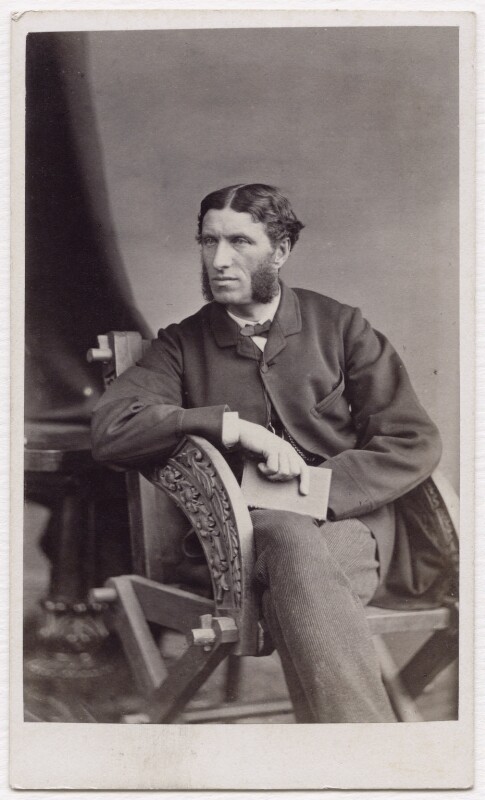Matthew Arnold, a prominent figure in the 19th century, held a dual role as both a celebrated poet and a leading literary critic. Widely recognized as a pioneer in modern literary criticism, he also penned numerous writings on a diverse range of topics including societal and cultural matters, religion, and the field of education. The most characteristic work of the English poet and critic Matthew Arnold deals with the difficulty of preserving personal values in a world drastically transformed by industrialism, science, and democracy.
“The Study of Poetry” is an essay written by the famous Victorian poet and critic Matthew Arnold. In this essay, Arnold discusses the nature and importance of poetry and provides his perspective on how poetry should be approached and evaluated. The essay was originally published as the introduction to T. H. Ward’s anthology, The English Poets (1880). It appeared later in Essays in Criticism, Second Series in 1888.
Arnold’s essay emphasizes the idea that the study of poetry should focus on the critical and objective evaluation of poetic works rather than personal preferences or subjective emotions. He argues that poetry has a high and noble function in society, which is to provide moral and intellectual guidance and to elevate the human spirit.
Arnold argues that the primary function of poetry is to provide a “criticism of life.” He sees poetry as a means of exploring and understanding the complexities of human existence, addressing the moral and social questions of the day, and offering guidance and consolation.
The potential of poetry in the future is vast. In Matthew Arnold’s perspective, during the Victorian era, religion seemed to have lost its vitality. He believed that poetry would now step in to play a crucial role in enhancing society. According to him, science remains incomplete without the presence and influence of poetry. Matthew Arnold said, “Without poetry, our science will appear incomplete; and most of what now passes with us for religion and philosophy will be replaced by poetry”.
The concept of “real estimate,” advocates for an impartial perspective that considers both the historical context and the creative elements when assessing the value of poetry. However, it is worth noting that this objective viewpoint is sometimes overshadowed by two other forms of evaluation: the “historic estimate” and the “personal estimate.”
The “historic estimate” prioritizes the historical context in which a poem was written over the intrinsic artistic value of the poem itself. In this approach, the poem is valued primarily for its historical significance and what it reveals about the period in which it was created, sometimes diminishing its aesthetic or literary qualities.
On the other hand, the “personal estimate” involves subjective judgments based on individual preferences, emotions, or personal connections with a poem. This perspective may not necessarily consider the broader historical or artistic context but relies more on the reader’s personal feelings and reactions.
Arnold’s argument is that the “real estimate” should strive for a balanced evaluation that combines an understanding of historical context with an appreciation of the creative and artistic qualities of a poem. He believed that this approach would lead to a more comprehensive and just assessment of poetry, allowing readers to recognize and appreciate its enduring value beyond personal or historical biases.
Touchstone Method for Evaluating Poetry: Arnold’s touchstone method is a comparative method of criticism. According to this method, in order to judge a poet’s work properly, a critic should compare it to passages taken from works of great masters of poetry, and these passages should be applied as touchstones to other poetry. The method encourages readers and critics to employ these criteria when evaluating poems to ensure a fair and impartial judgment.
Matthew Arnold regarded Shakespeare and Milton as great poetic classics, while he did not place Dryden and Pope in the same category. Although Dryden and Pope were accomplished in their literary endeavors, they lacked certain qualities that, according to Arnold, were distinctive to Shakespeare and Milton. Arnold believed that Dryden and Pope could be celebrated as classics of English prose, but their works did not attain the status of classics in the realm of English poetry.
Arnold considered Thomas Gray to be a poet of unique distinction. Regarding poetry, Arnold regards Gray as the sole standout from the 18th century. Gray dedicated himself to the study and appreciation of Greek poetry, consequently adopting their poetic perspective and their utilization of poetry in the context of life. However, he is deemed the “most limited and delicate classic” due to his relatively modest body of work.
Matthew Arnold had a deep appreciation for Scottish poetry, and he held Robert Burns, who belongs to the eighteenth century in high regard as a great poet. Arnold recognized the presence of “high seriousness” in Burns’ poetry, which means that Burns addressed significant and weighty themes in his work. His poems deal with Scottish dress, Scottish manners, and Scottish religion. This appreciation for Burns underscores Arnold’s belief in the importance of poetry that engages with profound and serious subjects, reflecting his own critical criteria for evaluating poetry.
Arnold believed that poetry should address profound and serious subjects. Therefore, when evaluating poetry, one should consider whether the poem tackles weighty themes or issues, offering insights or reflections on life, morality, and society. He considered the most important criteria used to judge the value of a poem were “high truth” and “high seriousness”. By the criteria established by Matthew Arnold, Chaucer’s “Canterbury Tales” did not receive his full approval. Arnold believed that works of literature, including poetry, should exhibit both “high truth” and “high seriousness” to be considered meritorious. In his view, great works of literature, such as those authored by Shakespeare and Milton, possessed these qualities and could be used as benchmarks for evaluating the merit of other literary works, including poetry.
